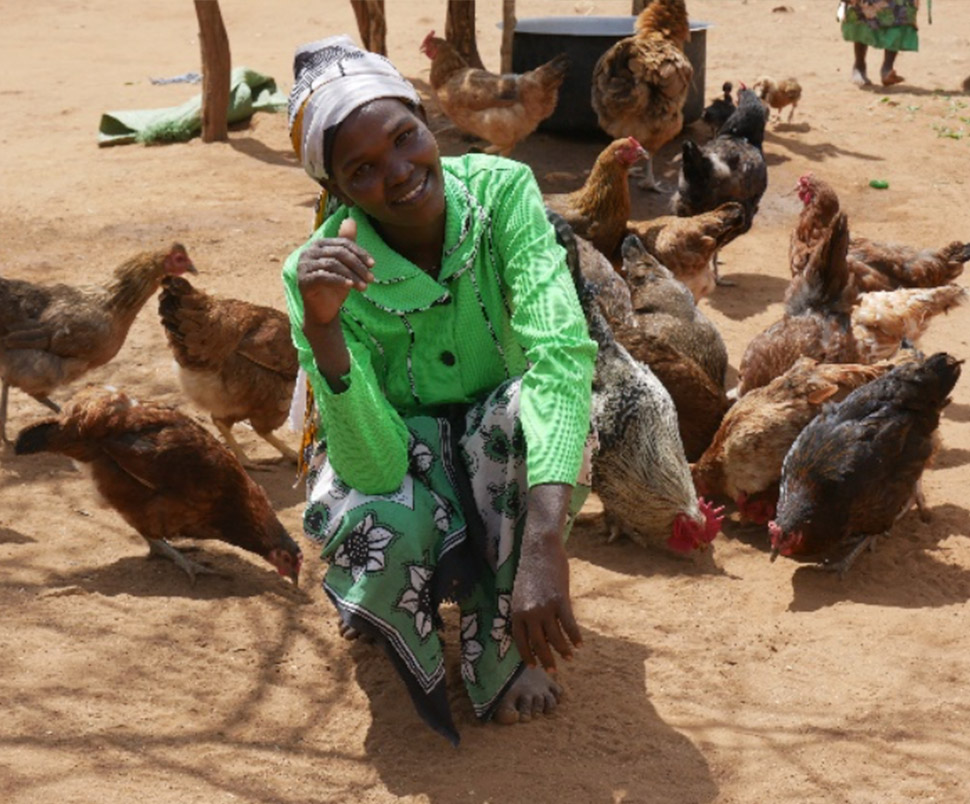
Raising Chickens Brings Gender Equality
When Agnes’s children need school supplies or tuition is due, finding the money to pay for them is no longer an issue. She has plenty of eggs and chickens to sell thanks to training she received in caring for poultry, as a member of a Self-Help Group (SHG) supported by the Kenya West Pokot program. The hens and eggs bring in a good income in addition to adding protein to meals.
Agnes is not the only woman who is making a valuable contribution to her family’s income. Thanks to local partner Jitokeze’s training and encouragement, SHG members are bringing about gender equity. Pokot men herd cows and goats and have traditionally been seen as the providers, while women do the lion’s share of caring for the family and home. Women might keep a few chickens but didn’t recognize their potential. As the women started earning money from their poultry, they started gaining their husbands’ respect and are now being treated more as equals. In fact, now that the men have realized the value that the women are bringing to the community, they are supporting the women’s efforts by taking a more active role in the family. One day a week, the men take over household responsibilities like childcare and cooking so their wives can meet with their SHGs to share their experiences or receive additional training. This was once unheard of in their culture, since men don’t normally help with chores at all, and shows how much they appreciate the women’s contributions.
Agnes is so dedicated to putting what she learns into practice that she now has 60 mature birds and 40 chicks. A big breakthrough in her production levels came when Jitokeze helped her construct an energy-efficient stove with a “chepkube brooder” below. The warmth of the stove makes for a cozy incubator and protects chicks from the cold and from predators.
Caption: Agnes incubates chicks in a warm compartment under her energy-efficient stove
Kenya West Pokot Program
Led by Evangelical Covenant Church/Covenant World Relief and Local Partner Jitokeze Wamama Wafrika
22 communities, 440 households, and 2,640 individuals
